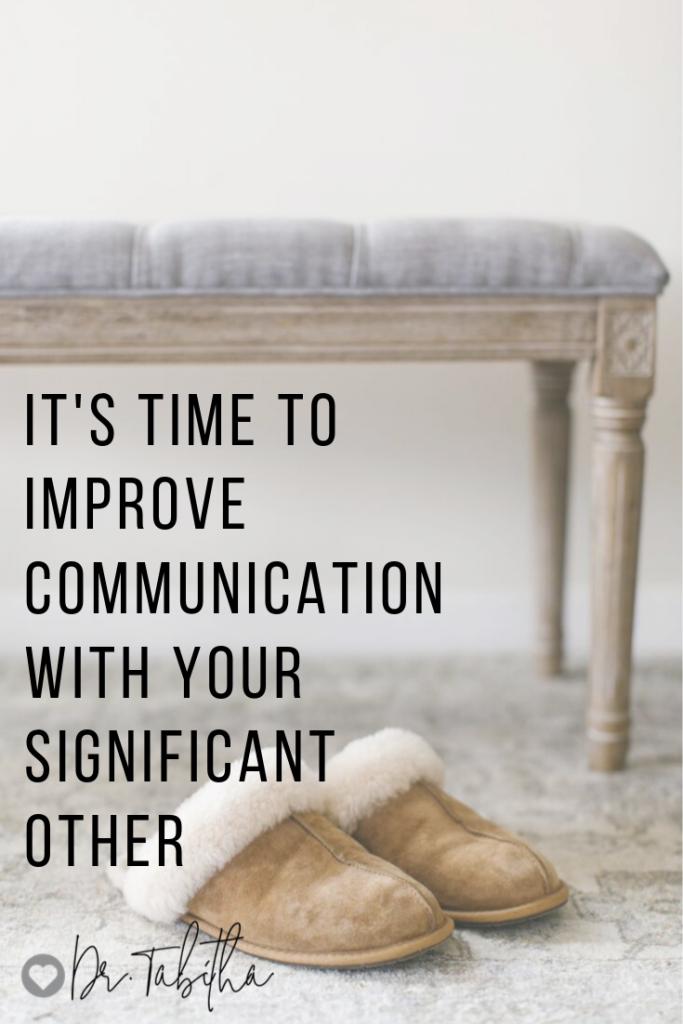
Miscommunication happens. My husband says, “I think I could’ve said that better.” He says that when he knows what I heard him say didn’t come across exactly the way he intended. Have you ever been in an argument with your spouse and just know the conversation isn’t going anywhere near how you intended? It definitely has for us. Improving communication is extremely important in any marriage or relationship. In fact, many researchers suggests that communication is one of the most important aspects of a satisfying marriage, and I’d have to agree. There are so many ways we can get off track in communicating to the ones we love, so let’s look at three ways to improve communication before the argument begins.
3 Ways to Improve Communication With Your Spouse
Give Undivided Attention
We have too many distractions today. In this world of instant, we have more accessibility to technology: email, text messages, social media…all of which can distract us from our spouse. Have you ever found yourself in the middle of a conversation with your spouse, but they seem more interested in their latest text or email message than what you just said? What about the latest newsfeed update on your cell phone, did it just pull your attention away from what he just said? Putting away your phone or laptop to give your undivided attention can communicate to your spouse that they are most important, and you care what they have to say.
Be an Active Listener
When it comes to improving communication with your loved one, it’s important to actively listen. Truly being an active listener is displayed by several key demonstrators: eye contact, reflecting or summarizing, asking open ended questions, and displaying nonverbal cues that you’re listening.
It’s so important to have intentional eye contact during conversation, to nonverbally communicate that you’re engaged with your spouse and what they are saying. Also, reflect what your partner says to ensure you both that you understand his or her perspective. For example, “So you felt upset because I forgot to take out the trash?”
Asking open ended questions can be another useful tool in communicating effectively. This can let the other person know you are listening and helps continue and potentially deepen the conversation. For example, “How did you feel when I let you down by not taking out the trash? What do you need from me now?”
It’s important during conversation that you’re showing verbal and nonverbal cues that you’re listening. Nodding your head, saying “uh huh” or “I understand,” showing positive facial expressions such as a smile, and kindly touching your partner signals that you’re engaged and hearing them.
On the contrary, sending nonverbal cues like eye rolling, sighing, shaking your head, or physically moving farther away can communicate to your partner that you are shutting down or not hearing them.
Confront Miscommunication
Sometimes it feels like you and your mate are in two very different worlds. This can be frustrating! Misunderstandings are part of every relationship. But, a healthy solution can be found when you choose to confront miscommunication and address misunderstandings. When you’re on separate pages, it’s a great time to check-in with your partner. Ask questions such as, “this is what I said, what did you hear?” Or, “it sounds like you are feeling (this specific feeling), is that right? Or is it something else? Help me understand. I want us to be on the same page.”
Sometimes, it’s helpful to revisit a conversation. “I think we might have missed something. When you said (this), I thought you meant (that). Can you help me understand what I might have missed?” Using “we” language, and also taking responsibility that it might have been your mistake (rather than your partner’s), decreases the likelihood of defensiveness and helps you work as a team to resolve the miscommunication.
Practicing these tips can help ensure you and your mate are communicating effectively. For additional suggestions on how to communicate and connect with your spouse, check out one of my favorite relationship books, 7 Principles for Making Marriage Work by Dr. John Gottman.






Leave a Reply
Your email is safe with us.